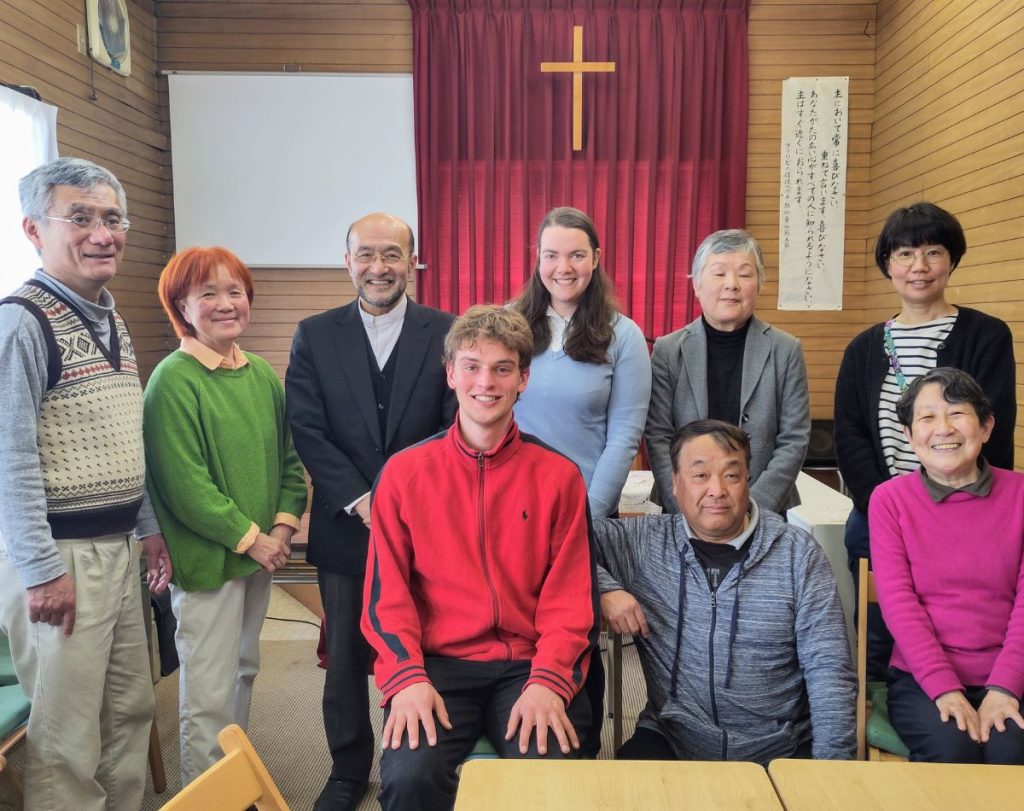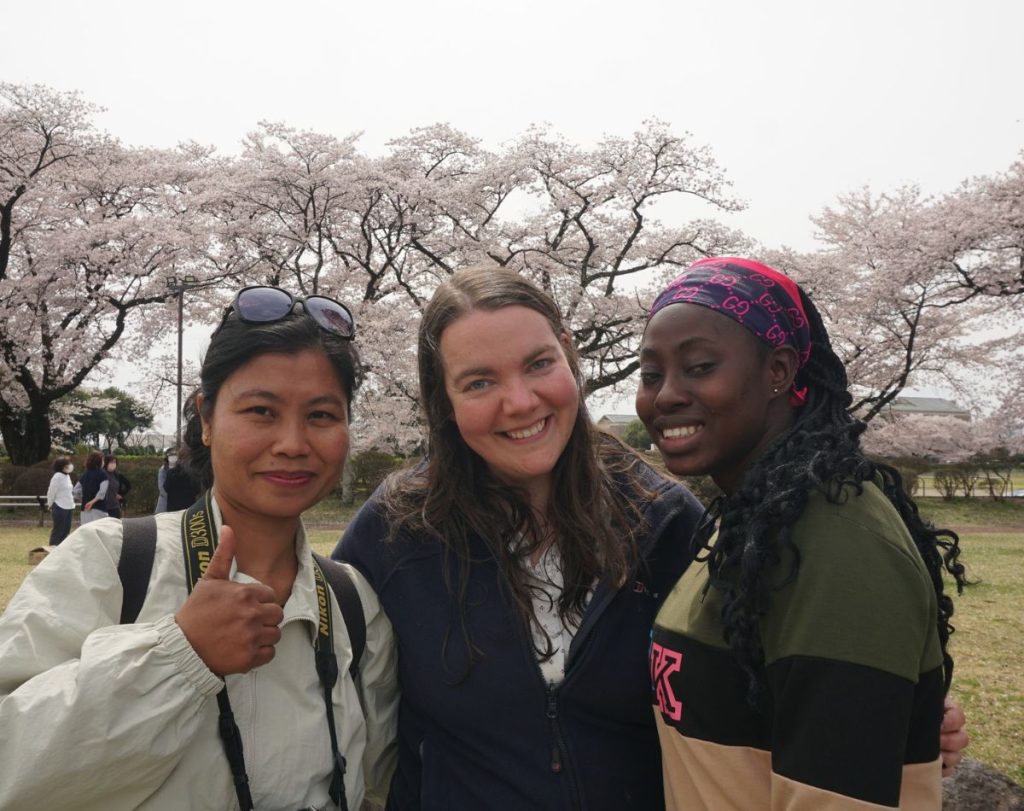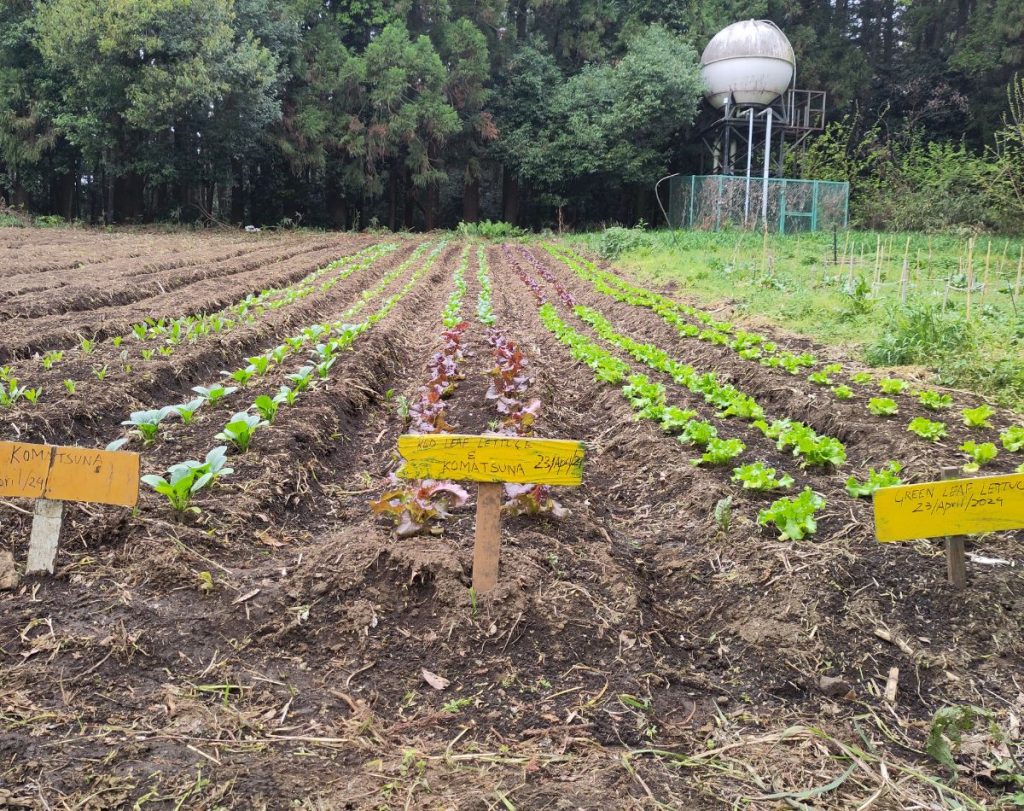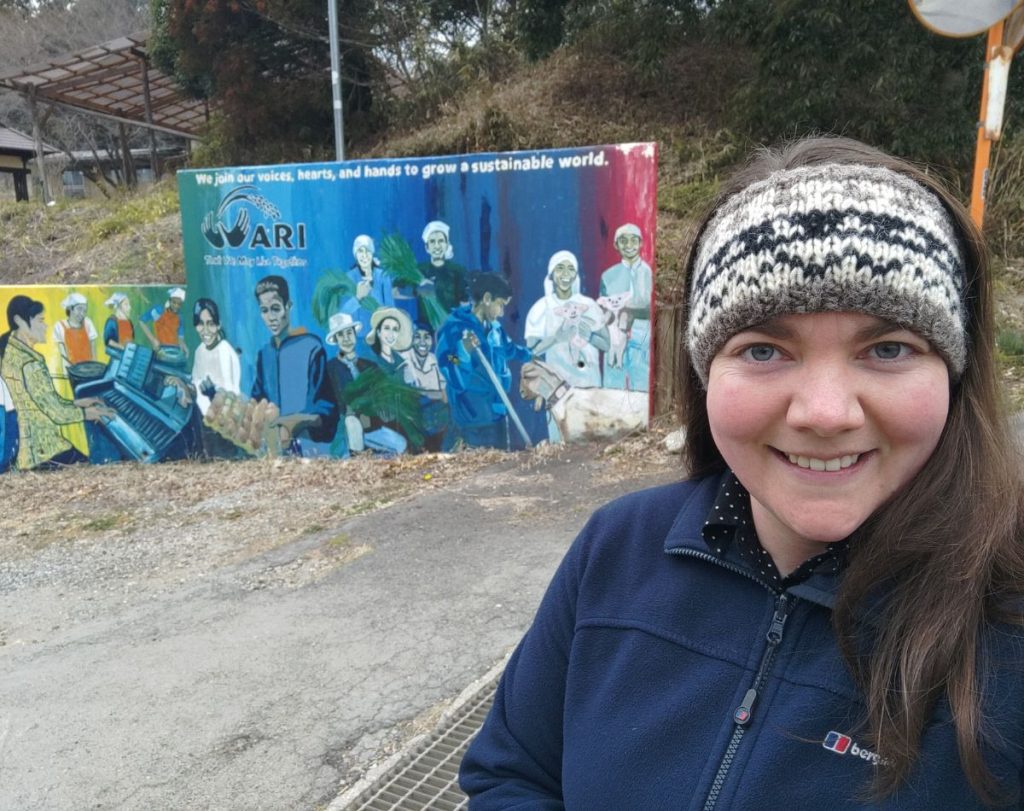I spent six weeks at the Asian Rural Institute (ARI) in Nasushiobara, Japan in March and April 2024. ARI is a training centre for international rural leaders focusing on organic agriculture, community advocacy and servant leadership (modelled after the example of Jesus Christ). Set on six hectares, ARI is a working farm and is over 95% self-sufficient in terms of food production. ARI curates an intentional community of staff, participants, volunteers and visitors which is played out through a daily rhythm of work on the farm, studying for participants, community reflections/prayer and meals shared together.
Established over 50 years ago, ARI is a ministry of the United Church of Christ in Japan (a United/ecumenical church) and holds further ecumenical partnerships across denominations within Japan and worldwide. During my time in Japan, I worshipped with the Nippon Sei Ko Kai (Anglican Communion in Japan) and alongside local UCCJ congregations.
Reconciling relationships
ARI is a ministry founded out of a desire for reconciliation and peacebuilding and as an acknowledgement of Japan’s war responsibility. It was a joy to spend time in an organisation based on active and positive peace working to reconcile relationships between people and God, neighbour and soil (creation). It demonstrated a holistic and integrated approach to the climate and ecological emergency based on ideas of simplicity, slowing down and becoming more in tune with the needs and desires of creation and each other. Food, and the inseparability between food and life (encapsulated in the concept of ‘foodlife’), was a centrepiece of life at ARI. Fellowship whilst breaking bread together was a joy, especially knowing that we had grown and created the food together.
I was surprised by how the shared act of farming cultivated a space for vulnerability and deep conversation. ARI founder Toshihiro Takami wrote: “working together with nature is a spiritual experience, for we are close in touch with the work of creation to sustain life… By sharing such deep spiritual experiences daily, the differences in religious affiliations cease to be barriers among us.” Whilst founded on Christian values, ARI prides itself on being a place that welcomes people of all faiths and none. I enjoyed being in a space where sharing and discussing faith was so easy and I hope that this experience emboldens me to be more proactive in doing so as I return home.


“the inconvenience of community living”
My highlight was living within an intentional Christian community and the lessons and blessings that come with, as the Director of ARI described it, the ‘inconvenience of community living’. Learning how to share space and put the needs of the whole community above my own comfort and privacy presented a different way of living; one in which joys, conflicts and frustrations were played out and proactively resolved and reconciled as a means of strengthening community. We joined together in daily reflection/ meditation and shared our own traditions in worship services and prayer meetings.
I was inspired by the model of servant leadership and the value and respect given to the wisdom and experience of all community members (those on the training course are known as ‘participants’ not ‘students’). Given that the majority of community members were under 35 years old, it was an incredibly affirming demonstration that as young people we are the leaders of today, not just the leaders of tomorrow. Over the course of my six weeks at ARI I found myself encouraged, challenged and inspired by each member of the ARI community. For me, this was a lesson that with openness, relationship and vulnerability each person that we meet has the ability to inspire us and transform our way of thinking.
ARI provided a practical outworking of many of the theological principles that have guided my existing interest and work in eco-theology. It highlighted the reality of how easy it is to become detached from local initiatives when working in a national office and I have returned to the UK committed to ensuring that I become more connected to work within my local community.
Joining the dots
With church-based climate justice initiatives (rightly!) increasing in prevalence, my time at ARI enhanced my commitment to ‘joining the dots’ and working together.
ARI provided insight into a form of East Asian eco-theology (ARI define themselves as having Christian values and concepts influenced by Japanese values and Buddhist traditions) which is not prominent in the eco-theology discussions I have been a part of either within the UK or in Anglican Communion working groups. I look forward to remaining connected with those I met at ARI and reading more scholarship from the ARI community to challenge my thinking and practice.


Personally, experiencing life that is more in tune with the rhythms of nature provided a space for healing, restoration and self-care. Many of the agricultural parables and teachings within the Bible now hold new resonance for me. Furthermore, community living brought lived experience to the challenges and benefits of participatory approaches to decision-making based on the principle of ‘we go slow but together’. Finally, I have a greater appreciation for the food that I eat as well as the hands which prepare it.
Explore the ARI website or follow ARI on Facebook.
Find out more about The Bill Snelson Young Ecumenists Fund and read about the experience of other grant awardees.